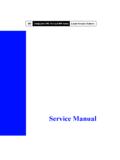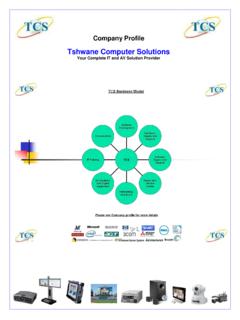Transcription of LEXMARK (CONTINUED): WHY JAZZ PHOTO IS A …
1 LEXMARK ( continued ): WHY jazz PHOTO IS A FLAWED OPINION *. Harold C. Wegner**. This paper is an extension of a main paper, LEXMARK : jazz PHOTO Denial of Patent Exhaustion (April 15, 2015)(attached as a first appendix), which deals with the upcoming en banc reconsideration of the doctrine of international patent exhaustion keyed to the case of first impression of the Federal Circuit in jazz PHOTO Corp. v. Int'l Trade Comm'n, 264 1094 ( ) (Newman, J.). Missing in the main paper is an analysis of the jazz PHOTO opinion. The analysis is found in International Patent Exhaustion: Whither the Supreme Court? (2010), attached as a second appendix. jazz PHOTO , a Seriously Flawed Opinion Whether the holding in jazz PHOTO is right or wrong is not the point of the present paper. Rather, the issue for this writer, here, is that when the Federal Circuit speaks on a very important point in a case of first impression as it did in jazz PHOTO it should present a reasoned opinion that goes first of all through the legal precedent of the Supreme Court that may be relevant and then, at its option, go into policy reasons for or against a particular position.
2 _____. *April 16, 2015. **Biographical information is included in the first appendix. Wegner, LEXMARK ( continued ): Why jazz PHOTO Is A Flawed Opinion What happened in jazz PHOTO is that there was a paucity of any significant discussion at all. For domestic exhaustion to occur the first sale must be from the patentee or his licensee or other person who took title from the patentee. The international exhaustion issue in jazz PHOTO is whether taking title from the patentee of goods in a foreign country triggers exhaustion. The entire basis for the holding denying international exhaustion in jazz PHOTO is set forth in less than seventy-five words: United States patent rights are not exhausted by products of foreign provenance. To invoke the protection of the first sale doctrine, the authorized first sale must have occurred under the United States patent.
3 See Boesch v. Graff, 133 697, 701-703 (1890) (a lawful foreign purchase does not obviate the need for license from the United States patentee before importation into and sale in the United States). jazz PHOTO , 264 at 1105. If jazz PHOTO had been on all fours with Boesch v. Graff then the brief opinion in jazz PHOTO would have been correctly reasoned. But, as discussed in the second appendix paper, Boesch v. Graff had absolutely nothing to do with an offshore purchase from the patentee but, instead, involved a purchase from the patentee's competitor. Should LEXMARK Modify jazz PHOTO ? The holding in jazz PHOTO is of paramount importance particularly to the pharmaceutical industry; but, this is not the point of the present paper: Without en banc clarification of jazz PHOTO it would be inevitable that at some point the Supreme Court would grant review of jazz PHOTO .
4 2. Wegner, LEXMARK ( continued ): Why jazz PHOTO Is A Flawed Opinion To the extent that one agrees with the holding in jazz PHOTO that there is no international patent exhaustion, such a person should welcome the en banc opportunity to provide a reasoned basis for sustaining the holding in the case. Anyone who disagrees with the holding in jazz PHOTO should also be pleased with en banc review and the chance to seek a course correction in the case law. This writer expresses no opinion at this time on the merits as to whether jazz PHOTO was correctly decided as to its holding. The writer acknowledges, however, that his views on the subject have been well known in domestic and international circles for many years.*. *. F. M ller & H. Wegner, Negram: The Common Market-Wide Exhaustion of Patent Rights Through Territorial Licenses, 57 JOUR.
5 PAT. & TRADEMARK OFF. SOC'Y 46 (1975); Parallel Imports of Patented Goods: Killing the Technology Transfer Goose, paper presented to the Licensing Executives Society (France), Paris, May 1998; and presentation at the Fordham University School of Law, Sixth Annual Conference on International Intellectual Property Law &. Policy, Apr. 16-17, 1998; Parallel Imports, lecture to Peking University Law Faculty, May 1994;. Parallel Import Practice Restored in Japan: Negating the Implied License to Resell a Patented Product, privately circulated analysis of the 1997 Japanese Supreme Court opinion keyed to the writer's appearance by affidavit as expert in pleadings before the court; Japan AIPPI Gotemba Intellectual Property Law Conference, Gotemba, Japan, September 29-30, 1995; Patent Parallel Imports in Japan, Conusmer Promise or Patent Peril: The Aluminum Wheels Parallel Import Case ( ) (1995); Japan Violation of Patent Trade Principles - Impact, Consequences and Dealing with the Decision Permitting Patent Parallel Imports into Japan, Dinwoodey Center White Paper, April 28, 1995; Interview, Victoria Slind-Flor, Japanese Ruling Upsets Importers and IP Lawyers: Patent Holders Fear Losing Fair Market Prices, NATIONAL.
6 LAW JOURNAL, p. A7 (May 1, 1995); Parallel importe unter der Einflu der Japanischen Rechtsprechung Dazu (Parallel Imports and the Influence of Japanese Judicial Pronouncements). (GRUR Vortragsabend, October 24, 1995, Frankfurt). 3. LEXMARK : jazz PHOTO DENIAL OF PATENT EXHAUSTION*. Harold C. Wegner**. I. OVERVIEW 2. II. THE jazz PHOTO EXHAUSTION ISSUE IN LEXMARK 3. III. HISTORIC INTERNATIONAL PATENT EXHAUSTION 4. IV. FEDERAL CIRCUIT DENIAL OF THE DOCTRINE 5. V. GLOBAL FOCUS ON INTERNATIONAL EXHAUSTION 7. VI. A POST-KIRSTAENG OPPORTUNITY FOR CLARIFICATION 9. VII. CONCLUSION 11. About the Author 12. _____. *. This paper represents the personal views of the author. This version: April 12, 2015. **. Biographical information appears at page 12. Wegner, LEXMARK : jazz PHOTO Denial of Patent Exhaustion I. OVERVIEW. Should an overseas first sale exhaust patent rights?
7 Should international patent exhaustion be introduced into United States law? This is the first issue presented for en banc consideration in LEXMARK International, Inc. v. Impression Products, Inc., No. 2014-1617, unpublished (Fed. Cir. April 14, 2015)(en banc)(Order granting en banc review). The Federal Circuit asks whether its denial of this doctrine established in jazz PHOTO Corp. v. Int'l Trade Comm'n, 264 1094 ( ) (Newman, J.), should be reconsidered in view of the Supreme Court decision in Kirtsaeng v. John Wiley & Sons, Inc., 133 1351. (2013). See II, The jazz PHOTO Exhaustion Issue in LEXMARK . This paper next considers the first sale or patent exhaustion doctrine in the context of international patent exhaustion. See III, International Patent Exhaustion. While there have been numerous Supreme Court patent exhaustion cases dating back to the nineteenth century, there has never been a Supreme Court holding either confirming or denying the existence of international patent exhaustion.
8 In the absence of Supreme Court precedent, this vacuum was filled by jazz PHOTO . See IV, Federal Circuit Denial of the Doctrine. While the United States law of international patent exhaustion is in a relatively nascent state, the topic has been one of intense international debate that has split the developed and developing worlds. See V, Global Focus on International Exhaustion. While the Federal Circuit has passed on opportunities to clarify jazz PHOTO in the past, it has granted review at this stage because of the close parallels between the international patent exhaustion doctrine and the parallel issues relating to copyright law in Kirtsaeng. See VI, A Post-Kirstaeng Opportunity for Clarification. 2. Wegner, LEXMARK : jazz PHOTO Denial of Patent Exhaustion II. THE jazz PHOTO EXHAUSTION ISSUE IN LEXMARK . Per the Order in LEXMARK , this is a case [which] involves certain sales, made abroad, of articles patented in the United States.
9 The first issue presented for en banc briefing asks whether the rule of international patent exhaustion should apply to the United States: In light of Kirtsaeng v. John Wiley & Sons, Inc., 133 1351 (2012) should this court overrule jazz PHOTO v. International Trade Commission, 264 1094. (Fed. Cir. 2001), to the extent [ jazz PHOTO ] ruled that a sale of a patented item outside the United States never gives rise to United States patent exhaustion.. The Order was granted prior to any panel decision in the case without dissent or any other separate opinion. (The Order also includes a second issue that asks: In light of Quanta Computer, Inc. v. LG Electronics, Inc., 553 617 (2008), should this court overrule Mallinckrodt, Inc. v. Medipart, Inc., 976 700 (Fed. Cir. 1992), to the extent [that Mallinckrodt] ruled that a sale of a patented article, when the sale is made under a restriction that is otherwise lawful and within the scope of the patent grant, does not give rise to patent exhaustion?)
10 3. Wegner, LEXMARK : jazz PHOTO Denial of Patent Exhaustion III. HISTORIC INTERNATIONAL PATENT EXHAUSTION. Patent exhaustion is the doctrine whereby a patent owner on his first sale loses all right to control the use or resale of patented goods. After the patent owner has received whatever reward through the purchase price or otherwise in the first sale, the customer is then free to resell or otherwise dispose of the patented product free from the patent right. As explained by the Supreme Court in Quanta Computer: The longstanding doctrine of patent exhaustion provides that the initial authorized sale of a patented item terminates all patent rights to that item. This Court first applied the doctrine in 19th-century cases addressing patent extensions on the Woodworth planing machine. Purchasers of licenses to sell and use the machine for the duration of the original patent term sought to continue using the licenses through the extended term.


